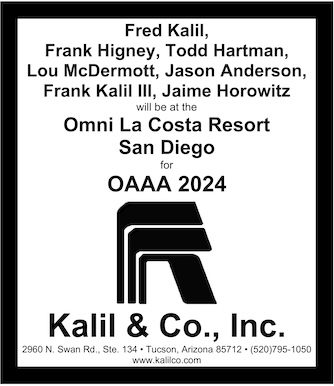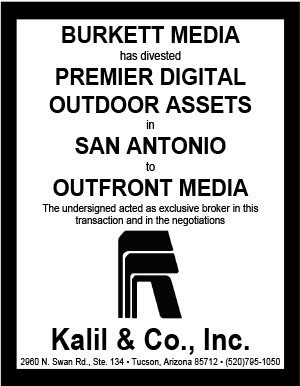
By Chris Rothfelder, Rothfelder Falick
At last week’s IBOUSA out of home mergers and acquisitions panel someone asked, “Why should independent operators hire a broker?” Without missing a beat out of home broker Max Drachman of Drachman and Co said, “Because we’ll make you more money!”
So why should an independent operator hire an attorney when buying or selling assets? Because we’ll save you more money.
Getting good advice and putting in the time on the front end, before you close on a deal, can save you effort, headaches, uncertainty, and expense after you close. And you don’t have to break the bank to get the answers to questions that come up during due diligence. I always tell clients, “The more you do on your end, the less I have to do on my end.” Operators live with leases, permits and ad contracts on a daily basis, so they don’t need a lawyer to pull out a fine tooth comb and magnifying glass to say what hairs out of place. Instead, buyers of assets should come to me (or their counsel of choice) with specific questions about any red flags spotted during due diligence, so that this attorney (or any other) will respond efficiently with the information needed to move forward. A broad request to a lawyer, to “please review” contracts and leases, will no doubt result in extra, and often unnecessary, time and attorneys’ fees, which could be avoided if a buyer puts his or her experience to use, and reviews documents during diligence, before going to an attorney about the important issues that need serious attention.
So what else can a buyer do to save money? Title is always an issue when acquiring leases and signs, and title insurance is the seemingly obvious, albeit costly, answer to the question of how you protect yourself in the event a sign sits on property that has skeletons in it’s chain of title closet. Before asking you to purchase title insurance, any title company is going to send you a commitment. The commitment should show everything in the chain of title, and the title company has an incentive to ensure the accuracy of a commitment, since it’s going to put its own money on the line when it issues a title policy based on the commitment. If you see something of concern in a commitment, like a questionable lien or conflicting leasehold interest, address it on your end with a subordination agreement or estoppel certificate (more on this in a minute). If you don’t see anything alarming, perhaps you don’t need title insurance at all. The bottom line is I rarely see clients purchase title insurance after receiving a commitment, whether because the size of the transaction doesn’t warrant it or the client can button things up on it’s own after getting a free look at the chain of title, so saving money on title insurance is an area in which buyers can save some coin.
Estoppel certificates are always a sore subject on both sides of a deal. Sellers don’t want to rock the boat with landowners and buyers don’t want to slow down a deal by asking for more paperwork. But what I’ve found is an estoppel certificate is a useful tool, when implemented buy a buyer, at least, in almost every transaction. I would ballpark that more than half the leases I review often have some holes or questions that warrant being filled or answered with an estoppel certificate. Maybe you need the estoppel, made you can do without it, but requesting one is a good test of the stability of the lease and existing landlord-tenant relationship. If a landowner is unwilling to sign an estoppel certificate before the sale, is he going to be interested in doing favors for you (like granting special access or acquiescing to the relocation of a sign) after you’re the new tenant? And if the seller doesn’t want to approach the landowner before the closing, do you really think he’ll do more work for you if a problem comes up that needs the seller’s assistance after the money is wired? Probably not, and as a buyer, it’s always better to learn more about your sellers and landowners while you have control of the transaction.
What about subordination agreements? One of the most frequent adages I relay to clients is you have to weigh the practical and the legal sides of an issue. Do you need an SNDA every time you’re buying an asset located on or encumbering property that has an existing lien? From a legal perspective, it’s the smart thing to do – if a landowner defaults on a pre-existing loan then your lease is at risk of being wiped out. From a practical perspective, it may not be necessary. Trying to get an SNDA may elicit pushback from a seller or property owner, and will almost always slow down a deal. And, if the lessor or grantor under an easement is a credit-worthy property owner (say, a Sheraton hotel) then perhaps you don’t need to be too concerned about asking for a subordination agreement.
Several other issues and questions come up during due diligence. Do you need a confidentiality or non-compete clause in your purchase agreement? What about a right of first refusal, development agreement, or holdback provision? There’s several not-so-common provisions that can add significant value to a transaction, for both the buyer and the seller. Getting good and efficient legal advice on the front end, on these and the other issues that inevitably come up when working a deal, will almost always save you money down the road.
[wpforms id=”9787″]
Paid Advertisement

















